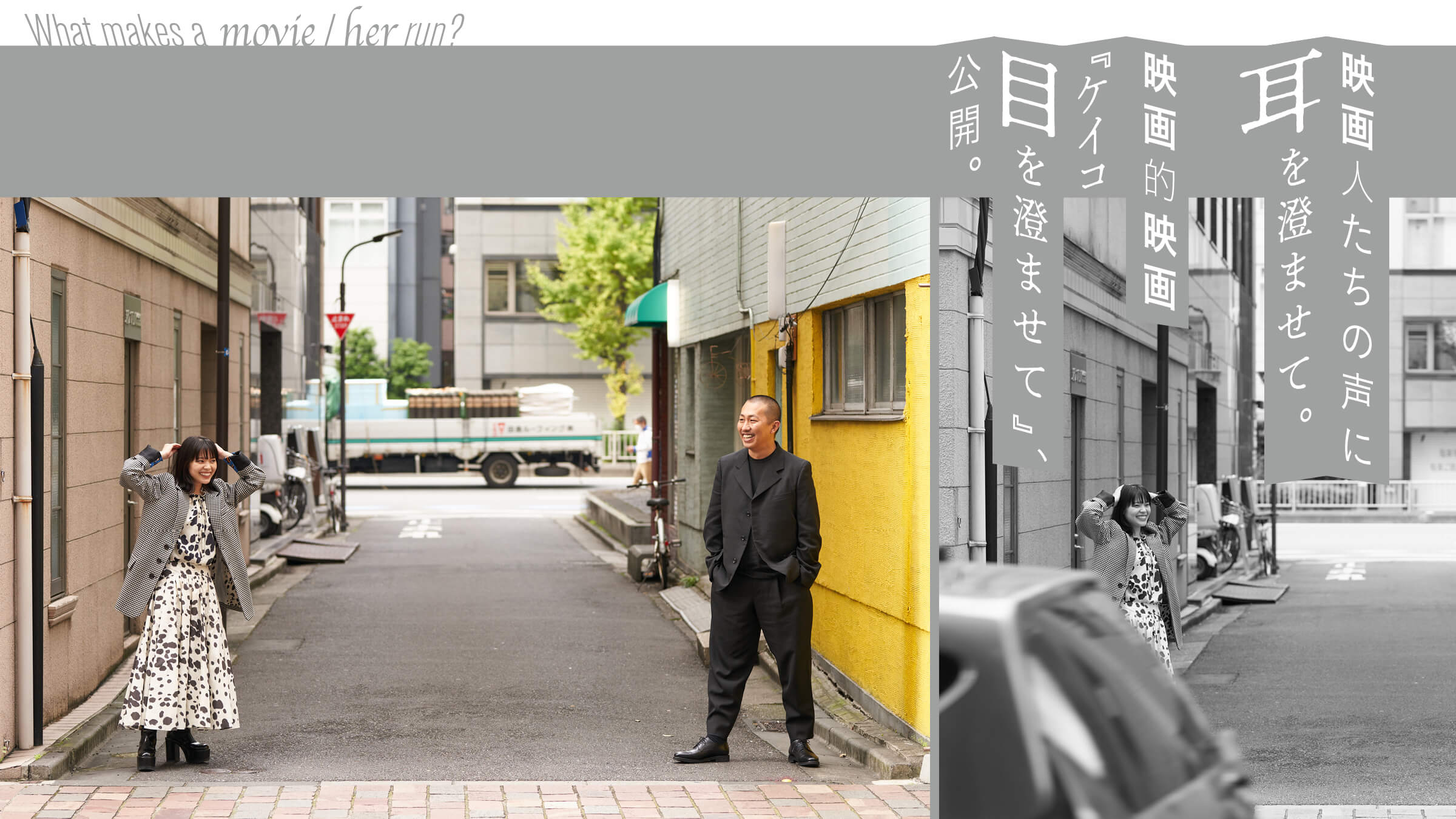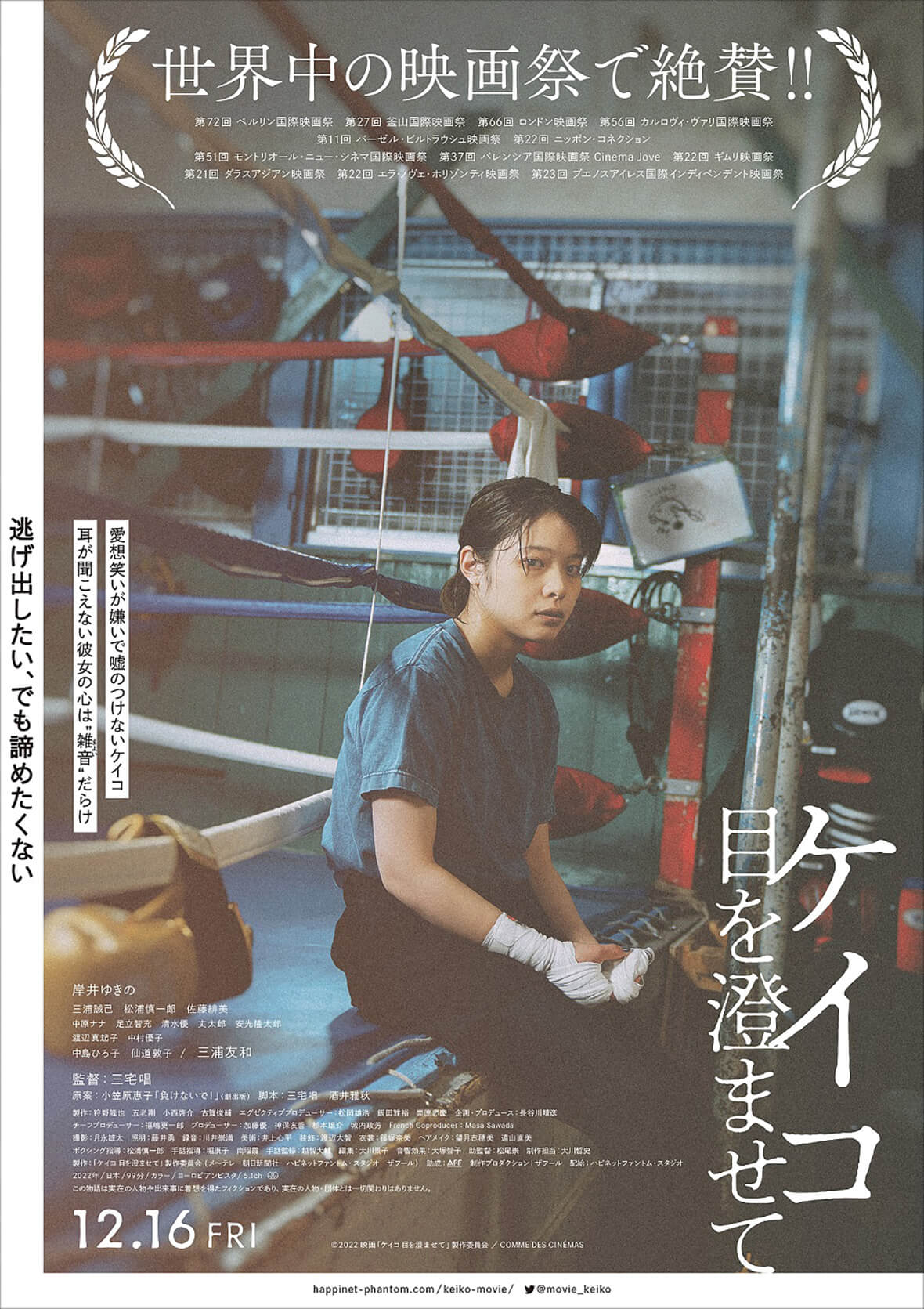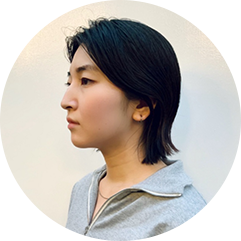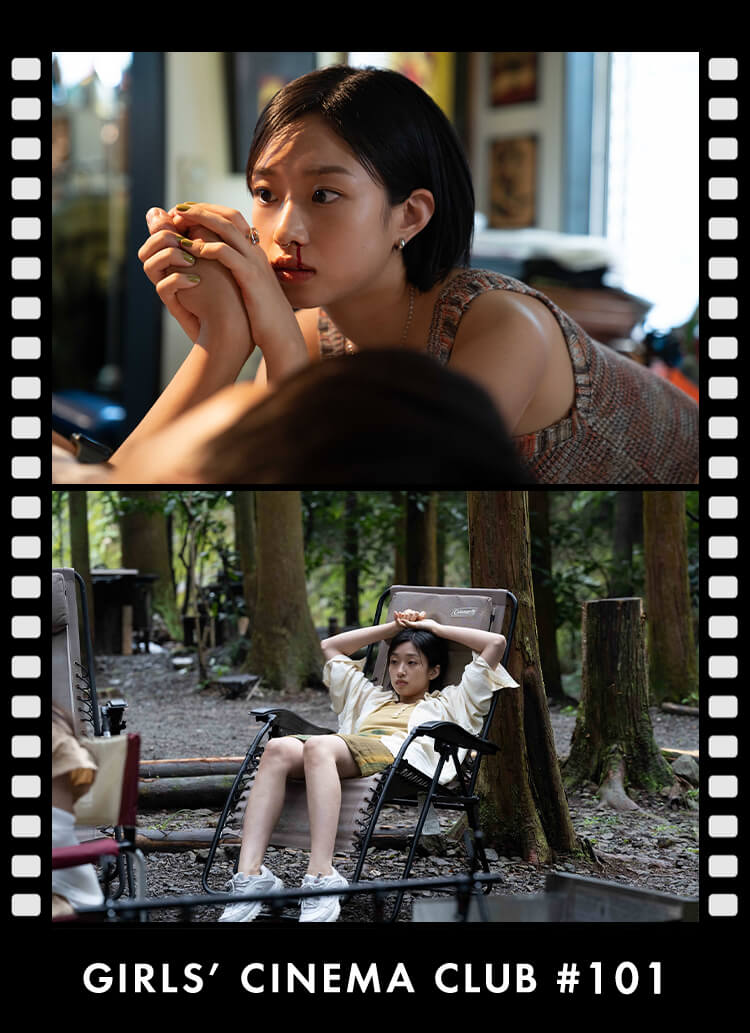The director's opening 10-minute message.


Director Miyake has said before that he thinks the first 10 minutes of a film are very important. From the sounds of chewing ice and running a pen in the opening scene, I personally felt the message that this film is about sound.
Miyake:Keiko, the main character of the film, was born deaf, but I had never met anyone like her before, so I met many people in preparation for the filming. At that time, I became aware of the fact that I am now a deaf person and that I was raised as such.
I am ashamed to admit that I had never been aware of the fact that I can hear, because it is so natural to me, but I started by learning about it when I heard the story firsthand. For example, I can hear the sound of a train during this interview, and I felt that only when I am made aware of something I was not aware of can I begin to imagine that the person in front of me may not be deaf. Even if someone is deaf, it is impossible to know exactly what it is like to be deaf, since the level of deafness varies considerably from person to person, even if it is only one ear, and it is impossible to relive the experience. I thought that first of all, I would have a new awareness of myself, and then I might be able to start communicating with people who are deaf, even if it might be only partially.
. Your approach is very careful and sincere.
Miyake:Growing up as a hearing person, I felt that was probably the only starting point for me to do the best I could. I wanted the opening of the film to be 10 minutes long, as if the hearing audience's senses were being opened by the sounds they hear. In addition, I wanted to start the film with a touch that is slightly different from what we are used to seeing visually, so that the first 10 minutes of the film will not only be for the ears, but also for the whole body, using both the ears and the eyes to see a completely different... well, different... familiar scene in a slightly different way. If you can open up your senses in the first 10 minutes, then you can watch Keiko's 99-minute story together.
. It is a very sensual, yet logically created opening, isn't it?

I would like to ask you , Mr. Kishii, if there is a line between you and the role of Keiko, a deaf woman, who can hear and cannot hear. What kind of approach did you take to get closer to Keiko?
Kishii:I didn't think there was a line between me being deaf and Keiko being deaf. So I already tried to listen to her anyway. I asked people from the Tokyo Federation of the Deaf who helped me with sign language, what kind of life they lead, how they communicate with each other, and so on.
There is a scene in this film that I like, where Keiko wakes up in the morning by feeling the wind from the fan that has been set to run at a certain time. I think I incorporated Keiko's senses into my own through my exposure to such everyday scenes that I did not know existed. Living in a world where one cannot hear sounds does not necessarily mean that one's way of thinking is any different from that of a person who can hear. It is the same as the fact that people who can hear have different personalities and live in different ways.
Miyake:I see. I see what you mean. You don't see it in the broad category of "men and women," but simply as Keiko, one of the men and women in the group. I have been thinking about that, too. It is natural that there are many different personalities among the deaf, some lively, some quiet, etc. So, in our work, we tried to remove as much as possible any preconceptions about the deaf, and focused only on what kind of person the original author, Ogasawara-san, is, and what kind of person Keiko, who was modeled on her, is. Right.
Kishii:. I didn't get the impression from the beginning that there were any big walls or bumps in the road there. At first glance, it seems that there are a lot of restrictions for a stoic boxer who is deaf. However, I feel that the role of Keiko is the most freeing role I have ever played. This is because the story of the film is based on Keiko's daily life, and I felt that I could move around in any way I wanted as long as I was allowed to move around without categorizing Keiko. If I could always be Keiko, my emotions and life would be connected no matter what I did, and I felt confident about being Keiko.
Miyake:At first, what attracted me to Ogasawara-san, the author, was her freedom. I felt a certain freedom in the way she spoke up and in the way she continued to box, even though she might have given up on it. I guess you could say it was a freedom to break through category barriers. I think that is what attracted me to her. I am glad that Ms. Kishii sensed that.

You were allowed to be Keiko, weren't you? What kind of communication did you and the director Miyake have with Kishii-san in order to create the scene?
Miyake:I feel like we talked a lot with the staff about how to capture the wonderful Keiko, played by Ms. Kishii, while being pulled along by her, but did we talk about anything with Ms. Kishii?
Kishii:I don't think we ever talked about what kind of person Keiko is.
Miyake:That's right.
Kishii:. Rather, we were talking about how to jump rope, how to give that hook.... Keiko, a boxer, talked with others on the common topic of boxing, and I took it in my own way that Keiko, as a boxer, felt and thought about these things.
Miyake:Yes, that's right. Since Mr. Kishii was Keiko, I could say that I photographed Mr. Kishii , or I photographed Keiko. There is no distinction between the two. By the way, Mr. Kishii, have you seen the whole film? (Laughs)
What, you haven't seen it?
Kishii:. not yet. I can't watch it because I'm crying.
Miyake:Can I tell you why? (Laughs). There is a match at the end of the movie, and you will have to watch the movie to see whether she was happy to win or disappointed to lose, but Keiko herself is crying. Can you imagine such a thing happening? I had a bad guess and thought that she couldn't stop crying because of all the hardships and memories she had gone through during the filming, but she told me that was not the case. She is simply shedding tears, wondering why I (Keiko) was like this at that moment in the game.
I am not exaggerating, but it really was Keiko herself, wasn't it?










